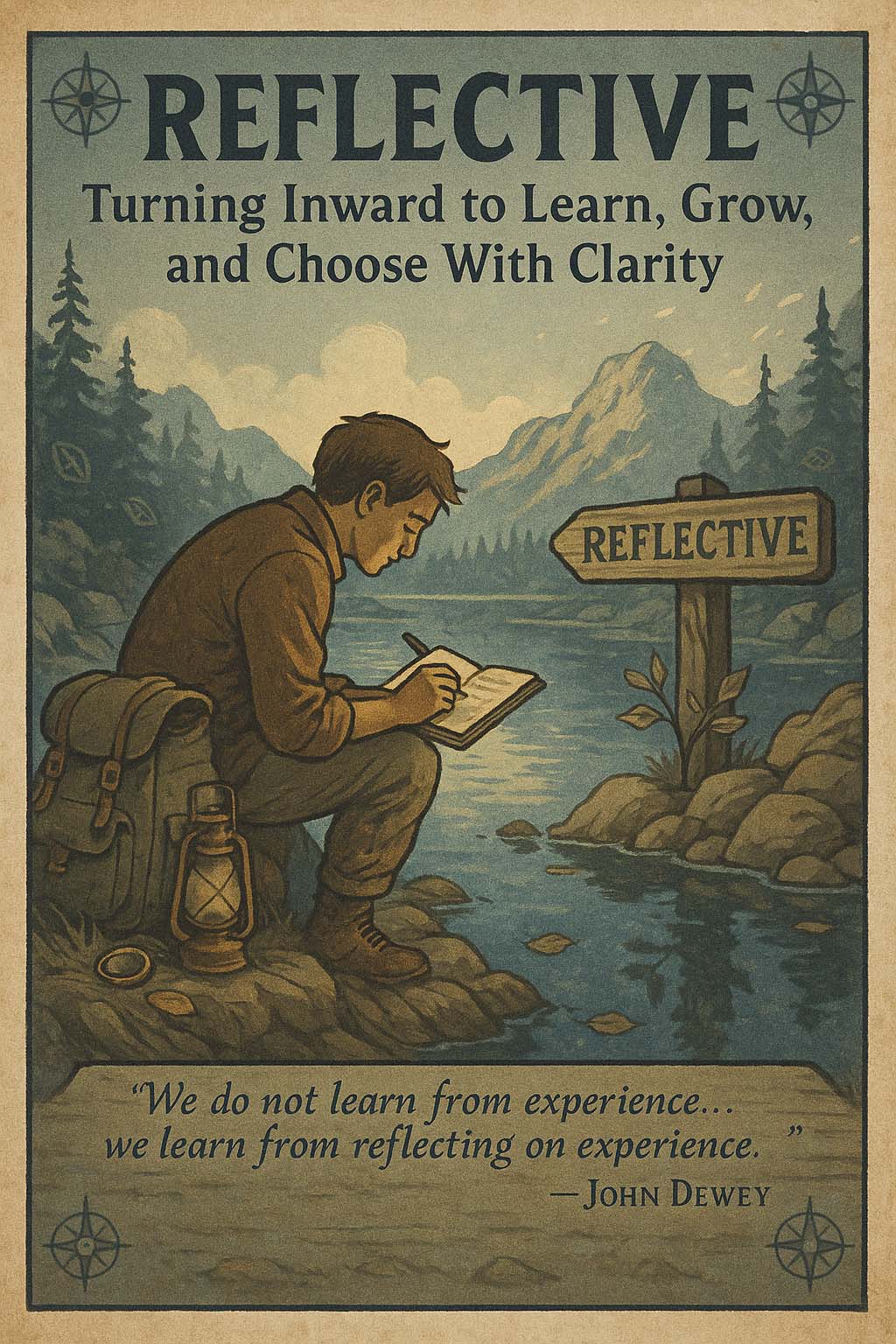
🔍 REFLECTIVE
“We do not learn from experience… we learn from reflecting on experience.” – John Dewey
Being reflective is the practice of pausing—not to freeze or second-guess, but to understand. In the fast-flowing, emotionally charged ADHD terrain, reflection becomes a powerful counterweight to reactivity. It helps transform impulsive choices into intentional learning. It’s the art of making meaning out of mess.
For ADHDers, life can feel like one long sprint from one urgent thing to the next. We may act quickly, speak fast, or jump between goals. Reflection slows the spin. It creates space to ask, “What happened? What mattered? What can I carry forward?” It turns patterns into insights, missteps into growth, and experiences into wisdom.
Living this value isn’t about ruminating or replaying every mistake. It’s about noticing. It’s about showing up to your own life with curiosity, not criticism. And for ADHDers who’ve often been judged more than heard, being reflective means reclaiming your own voice—your version of events, lessons, values, and truth.
Reflection builds self-awareness, resilience, and alignment. It’s the trailhead for every course correction. And it invites us to live less on autopilot—and more on purpose.
🧭 The HOPE Trail Map
- Helps or Harms: Am I reacting without understanding—or taking time to reflect before responding?
- Own My Values: I want to be someone who learns from my story, not just moves through it.
- People and Pursuits: Who holds space for me to reflect without judgment? What routines help me pause and look inward?
- Enact and Evaluate: Today, I’ll take five minutes to reflect on one recent experience—and find the meaning or learning within it.
⚠️ Trail Challenges
- ADHDers may avoid reflection due to fear of shame or overwhelm.
- Fast-paced thoughts can make quiet introspection difficult.
- Reflection may be mistaken for overthinking or regret.
🪧 Trail Markers: Small Steps Toward Reflective
- End your day with a 3-question journal: What went well? What was hard? What did I learn?
- Pause after a strong emotional moment and ask: “What was underneath that?”
- Try reflecting through movement (walks, drawing, voice notes) if stillness feels difficult.
🔥 Campfire Questions for Reflection
- When have I grown because I stopped to reflect, instead of rushing on?
- What’s one pattern I’ve noticed lately—and what might it be teaching me?
- What do I want to carry forward from this chapter of my ADHD journey?
To be reflective is not to be stuck in the past—it’s to harvest wisdom from it, and use it to walk your next step with more awareness and grace.
